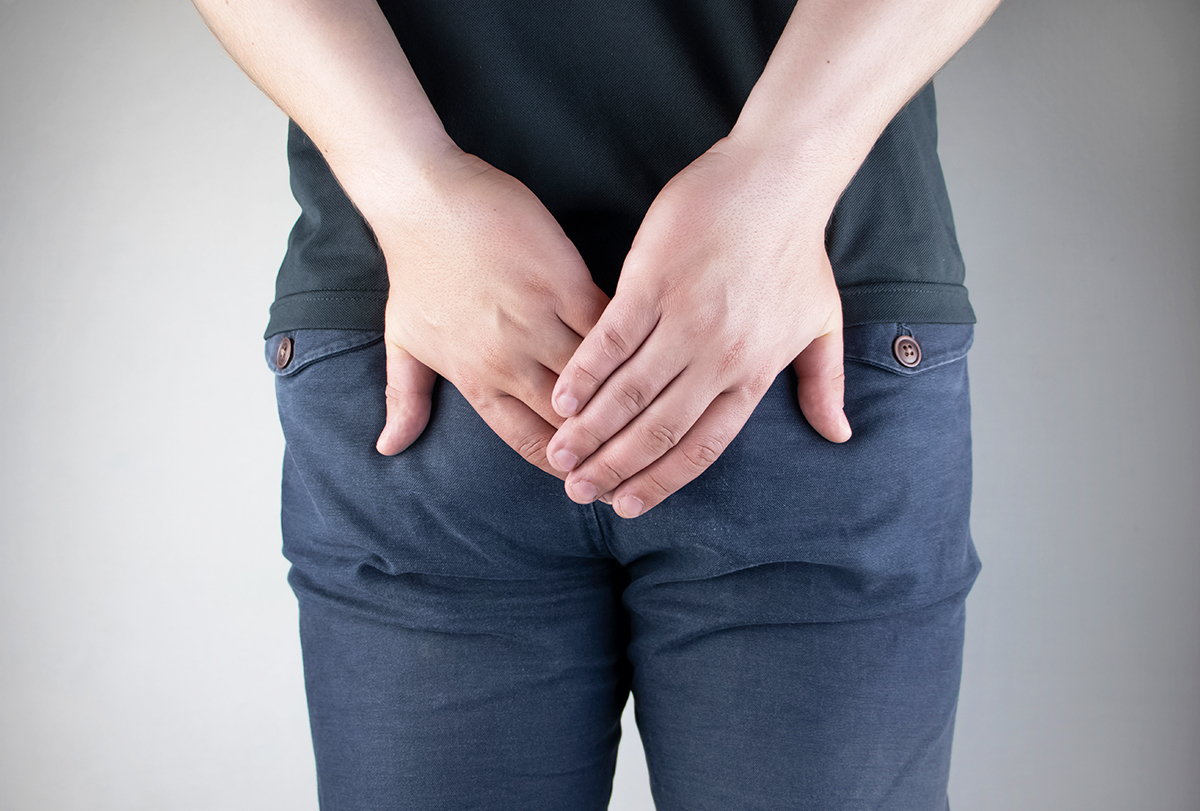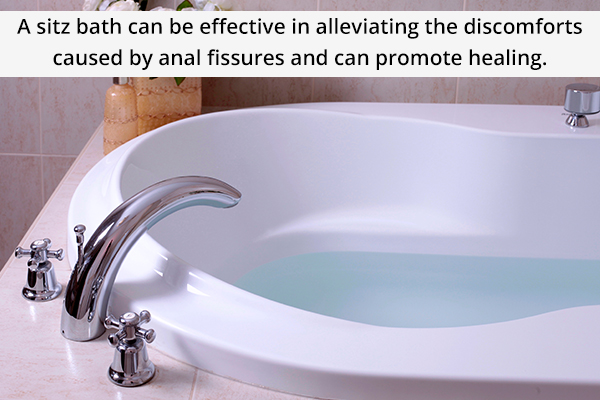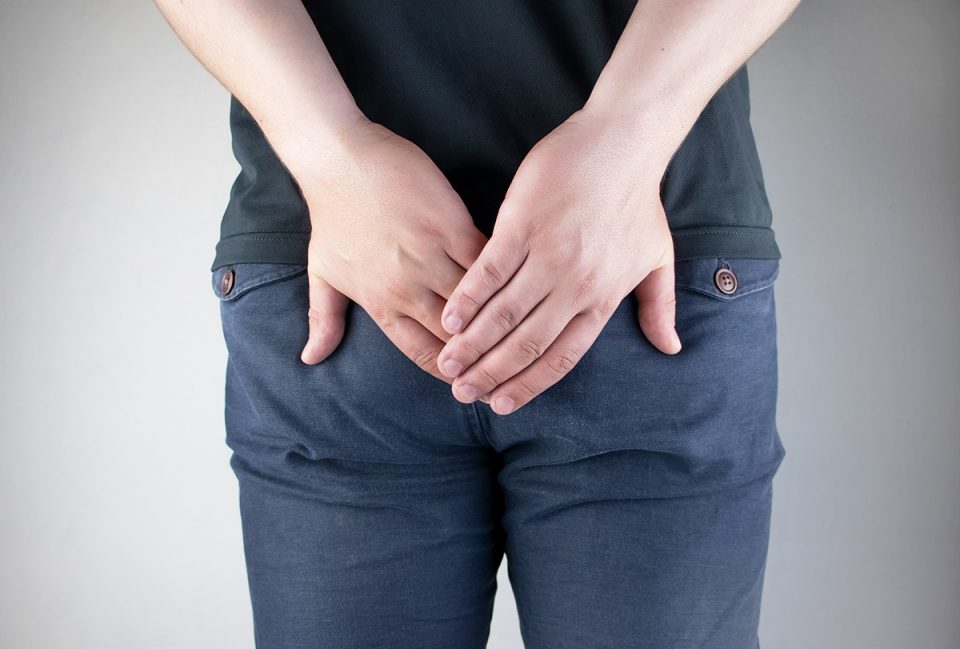An anal or a rectal fissure is a small tear, cut, or open sore in the skin around the anus. This problem can affect people belonging to all age groups but is more common in infants and young adults.

Anal fissures can extend their way into the anal canal, exposing the muscles surrounding the rim of the anus, the anal sphincter. This can cause a muscle spasm, which leads to the further tearing of the affected region, pain, and slowing down the healing process.
Bowel movements can be majorly a cause of anal fissures. Poor bowel habits can also act as a hurdle and prevent anal fissures from getting better.
Anal fissures are not a serious health condition and usually heal without any medical intervention. However, these may cause severe discomfort and pain.
Home Remedies for Anal Fissures
Anal fissures can also be addressed by home remedies that can help ease the pain and inflammation and relax the sphincter muscles. Some of these tried-and-tested remedies are outlined below.
1. Take a hot sitz bath

A sitz bath is a warm water bath that helps relax your buttocks, hips, and the region up to the waist. It can be effective in alleviating the discomforts caused by anal fissures and can promote healing.
It helps to increase the blood flow to the anal area, which aids in the healing of minor tears or splits in the tissue. This remedy also helps reduce pain, swelling, and itching.
According to a study published in the British Medical Journal, patients suffering from anal fissures observed a significantly better symptomatic relief after 1–2 weeks with warm sitz bath and bran as compared to those who were treated with lignocaine ointment or hydrocortisone ointment. (1)
How to use:
- Fill a large bathtub with warm water.
- Add a few drops of lavender essential oil to the water and stir it well.
- Sit still in the bathtub (up to your waist) for 15 to 20 minutes.
- Take a sitz bath two to three times a day for desired results.
Note: You may take a hot sitz bath or simply apply a warm compress after bowel movements. Make sure the water you use for these remedies isn’t too hot.
A study suggests that sitz baths can provide comfort to individuals with acute anal fissures. However, it cannot be solely used as a treatment. (2)
2. Add fiber to your diet
Following a high-fiber diet promotes regular bowel movements.
Regular fiber intake results in soft stools that are easy to pass. As a result, you do not have to exert excessive pressure during a bowel movement, thus avoiding damage to the lining of the anus. (3)(4)
How to consume:
Note: When increasing your fiber intake, make sure you drink plenty of water throughout the day to avoid gastrointestinal discomforts such as constipation.
For normal bowel continence, you can try the following:
- For the initial week, over-the-counter MiraLAX (polyethylene glycol) is recommended. Take enough to have at least two bowel movements with very soft stools per day. This will clear the system of hard stools and aid in the healing of any fissures.
- Alternatively, you can try this recipe.
- Find a large jar or tin with a lid.
- Go to the “bulk foods” section of your local grocery store.
- Fill half the jar with either Metamucil (this has an orange flavor) or Benefiber (this is in a green container and is tasteless and dissolves easily).
- Fill ¼ of the jar with oat bran.
- Fill ¼ of the jar with wheat bran.
- Stir or shake so that all the contents mix.
- Take one spoonful of this mixture, once per day and up to twice per day if needed.
The goal is for you to have one to two loose bowel movements per day.
3. Maintain hygiene
Maintaining proper hygiene is required to promote healing of anal fissures.
Because moisture can increase the risk of bacterial infections, it is very important to keep the anal region clean and dry.
- After each bowel movement, wipe the area with soft toilet paper. Avoid using rough and scented toilet papers, which can cause irritation.
- Dab some baby powder around the affected area after taking a bath. This will help keep the area dry.
- Wear loose-fitting clothing and cotton underwear.
- Do not sit in the same position for long periods of time, as this may lead to a buildup of moisture in the anal area.
4. Include flaxseeds in your diet
Flaxseed is loaded with fiber and omega-3 fatty acids that can help in treating constipation, the reason behind anal fissures. It has a laxative property that helps ease the need to strain during a bowel movement. (5)(6)
How to consume:
- Mix 1 tablespoon of flaxseed powder in 1 glass of water. Drink this mixture once daily before going to bed. This will regulate your bowel movement.
- You can also take flaxseed capsules. Consult your doctor for the correct dosage.
5. Heal the fissure with aloe vera gel
Aloe vera is documented for its natural healing powers and pain-relieving properties that can ease symptoms associated with anal fissures and can help repair damaged skin tissue.
A 2014 study published in the European Review for Medical and Pharmacological Sciences found that a topical cream containing aloe vera juice was an effective treatment for chronic anal fissures. (7)
How to use:
- Take an aloe vera leaf and slice it lengthwise.
- Use a spoon to scrape out the gel.
- Apply some of this gel on the affected area.
- Do this remedy a few times a day.
6. Lubricate with coconut oil
Coconut oil is a very helpful home remedy for anal fissures. It is rich in medium-chain triglycerides and easily penetrates into the skin, thus keeping the affected area lubricated and starting the healing process.
A 2008 study published in Pharmaceutical Biology suggests the anti-inflammatory, analgesic, and antipyretic properties of topical application of virgin coconut oil. (8)
How to use:
- Apply coconut oil over the fissure two to three times a day. Use this remedy several times a day for chronic anal fissures.
- If you suffer from constipation or other digestive problems, try including coconut oil in your diet.
7. Moisturize with olive oil
Olive oil is rich in healthy fats that lubricate your bowel system, thus allowing the stool to pass easily. Moreover, its anti-inflammatory property can help in reducing the pain caused by anal fissures.
According to a study published in the Scientific World Journal (2006), patients suffering from anal fissures noticed a reduction in pain, bleeding, and itching after using a mixture of beeswax, olive oil, and honey. (9)
How to use:
- Take equal amounts of olive oil, honey, and beeswax in a bowl and mix them well.
- Warm the mixture in a microwave until the beeswax melts completely.
- Allow it to cool and then apply it to the affected area.
- Repeat the application a few times daily.
8. Clean the fissure with comfrey
Comfrey is a popular herb that can promote healing and relieve pain in people suffering from anal fissures. The root and leaves of this plant have medicinal properties that help regenerate skin tissues and promote rapid cell growth, accelerating the healing process. (10)(11)
How to use:
- Add 1 tablespoon of dried comfrey to 1 cup of hot water. Cover the cup and let the comfrey steep for 10 to 15 minutes. Strain the liquid and allow it to cool. Use the solution to clean the affected area two to three times a day.
- Also, use warm comfrey tea as a compress on the affected area.
- You may also apply an over-the-counter comfrey ointment on the affected area two to three times daily.
Note: Comfrey should only be used in small amounts. Do not use this herb for more than 10 days as it has components that are toxic in high doses and long-term use. Also, this remedy is not suitable for women who are pregnant or breastfeeding.
9. Apply L-arginine gel
Arginine, or L-arginine, is an amino acid that supports the healing of anal fissures by increasing nitric oxide flow to the affected area.
A 2005 study published in Diseases of the Colon and Rectum stated that local application of L-arginine gel promotes fissure healing without leading to any side effects. The gel is even effective in patients who do not respond to isosorbide dinitrate treatment. (12)
How to use:
Apply over-the-counter L-arginine gel on the affected area a few times daily.
Note: L-arginine gel should be used with precaution by people suffering from cardiac disease, low blood pressure, and kidney disorder as well as those who have surgery scheduled.
Causes of Anal Fissures
People suffering from constipation are at a higher risk of ending up with anal fissures. (13)
However, there are several other possible causes behind this condition, including:
- Large or hard stools (it may tear the lining of the anus)
- Persistent diarrhea
- Inflammatory bowel disease (IBD)
- Crohn’s disease
- Ulcerative colitis
- Decrease in the blood flow towards the anorectal area
- Straining during childbirth
- Tight anal sphincter muscles
- Anal intercourse
- In rare cases, a sexually transmitted infection such as syphilis or herpes (3)
Symptoms of Anal Fissures
The most common symptoms include pain (brief or long lasting) and bleeding during or after bowel movements. Most people suffering from anal fissures observe bright-red blood either in their stool or on the toilet paper.
This condition is accompanied by the following symptoms:
- Irritation, burning or itching around the anus
- A lump or skin tags on the skin near the fissure
- A crack or tear in the skin around the anus
- Malodorous discharge
- Problems related to urination
Treatment for Anal Fissures
The treatment for anal fissures is targeted at reducing the pressure on the pelvic floor to relieve the pain and bleeding. Your doctor will prescribe the best-suited treatment method from among the ones discussed below:
- Suppositories, foams, or creams containing hydrocortisone, which can help reduce inflammation
- Botox injections into the anal sphincter that can help relieve the muscle spasms
- Surgery, which is the last resort when all else fails and is linked to an impaired bowel function as a side effect
- Topical creams and ointments that may be used as:
- Muscle relaxant to relax the muscle pain
- An anesthetic to ease the pain and medicated steroid creams to heal the fissure
- Calcium channel blockers and nitroglycerine to relax the anal sphincter muscles and promote the circulation of blood in the area
Diagnosing Anal Fissures
Your doctor will inquire about your symptoms, bowel continence, and the type of pain you have been experiencing.
Your doctor will visually examine your anus and anal canal. He may recommend an anoscopy or colonoscopy as required to determine any underlying cause.
Are Anal Fissures Recurrent?
Anal fissures can recur even after getting healed. It is best to evaluate the cause behind your anal fissure and tend to it to avoid any future incidences.
Even if the anal fissures have subsided, follow good bowel habits and a bowel-friendly diet to keep anal fissures at bay.
Preventing Anal Fissures
These tips can help you prevent anal fissures:
- Keep your anal area free of moisture.
- Avoid straining during bowel movements as this can open a healing tear or cause a new tear to develop.
- Clean your anal area properly after a bowel movement.
- Keep away constipation by eating fibrous foods, drinking enough fluids, regularly exercising, etc.
- If suffering from diarrhea, get treatment immediately.
- To prevent anal fissures in infants, change their diapers frequently.
- Ensure anorectal hygiene. Clean it gently and keep it lubricated.
- Avoid foods that may cause constipation. A few examples of such food items are bananas, white rice, cheese, and other dairy products, chocolate, large amounts of red meat, chips, and fried foods.
Additional Tips
- Keep your body hydrated by drinking adequate fluids. This helps to soften your stool and prevent constipation.
- Regular physical activity (at least 30 minutes a day) promotes regular bowel movement and increases blood flow to the anal area. You may do the walking, yoga, stretching, light housework, or gardening.
- Avoid biking, heavy weight lifting, and any form of exercise that requires you to strain.
- Sitting on hard surfaces can be very painful. Use a soft pillow to ease pressure on the anal area.
- Avoid scratching the affected area as this may exacerbate the condition.
Complications Regarding Anal Fissures
Perpetual fissures in the anus can lead to complications such as the following:
- An anal fissure that lasts for more than 8 weeks is termed chronic and causes major distress.
- The tunnels joining the anal canal to the surrounding organs can become infected from the anal fissures, resulting in anal fistulas.
- The abnormal constriction of the anal canal due to the narrowing of the scar tissue from the tear or muscle spasms in the anal sphincter can lead to anal stenosis.
- The anal fissure can extend to the surrounding ring of muscles that supports your anus. This may exacerbate your condition.
Final Word
Anal fissures are not a serious medical condition but can be a source of considerable discomfort and uneasiness. These can take a few days to a few weeks to heal.
You can use standard topical treatments and suppositories to lubricate the anal fissures. You can also try following natural remedies to relax the anal region by taking a warm sitz bath and to soften your stools by increasing your fiber intake.
You can also follow clean hygienic practices to speed up the healing process. A chronic fissure that fails to heal even after these treatments requires professional help.

